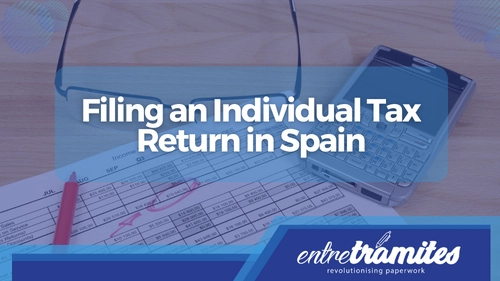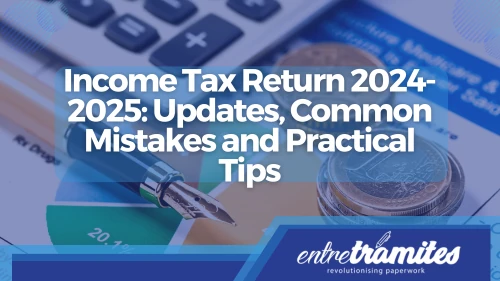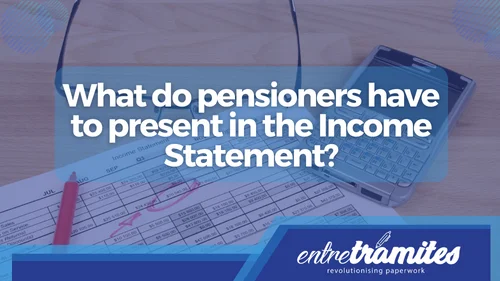Filing the income tax return is a procedure that taxpayers must carry out to inform the Tax Agency about their annual income and expenses. There are different forms of presentation, one of them being the presentation of an individual tax return in Spain. Next, we will explain what it consists of and how this type of declaration is carried out in Spain.
Filing an individual tax return in Spain refers to when a person makes their declaration independently or individually, without including their spouse or other members of their family unit. It is important to note that this option is available to those taxpayers who meet the requirements established by tax regulations.
If you file an individual tax return in Spain, it is essential to collect and organize all the necessary documentation. Documents typically required include:
- Income certificates: It is necessary to collect all the certificates that prove the income received during the fiscal year, such as those obtained from work, professional activities, rentals, or other income.
- Deductible expenses: Deductible expenses that can be applied in the tax return must be taken into account, such as medical expenses, mortgage payments, or education expenses, among others. It is important to have supporting documents and invoices that support these expenses.
- Information on assets and earnings: If you own assets, such as properties or investments, you must collect the information corresponding to their value and earnings obtained, since this can also influence their income tax return.
Once all the documentation has been compiled, the taxpayer must proceed to file the income tax return in Spain, and there are different options to carry out this procedure:
- Online submission: Through the website of the Tax Agency, you can access the assistance program for preparing your individual tax return. This program guides the taxpayer step by step, facilitating the process of filing the tax return.
- Submission in person: It is also possible to present the declaration in person at the offices of the Tax Agency. In this case, it is necessary to request an appointment and hand in the required documentation.
It is important to note that there are established deadlines to file the income tax return in Spain. Generally, the period covers from the beginning of April to the end of June, although these dates may vary a bit in each fiscal year. It is essential to be attentive to the established deadlines as to avoid possible sanctions or surcharges.
By submitting an individual tax return, the taxpayer assumes sole responsibility for the data provided and its veracity. Also, it is important to review and check the return before filing to avoid potential errors or inconsistencies.
In summary, filing an individual tax return in Spain is a modality in which the taxpayer makes his declaration independently, without including their spouse or other members of their family unit. To carry out this procedure, it is necessary to collect the required documentation and use the available options, such as the online or face-to-face submission. It is essential to adhere to the established deadlines and to carefully review the return before it is submitted.
Do you need help to file your individual tax return in Spain?
As a consulting firm in Spain we have experts in taxation and accounting matters in Spain that will provide you with comprehensive support in the process of making and submitting your tax return. See more of our tax services!
Contact us! Through the contact form you can leave your details for us to call you, schedule a free consultation with us or text our WhatsApp.





